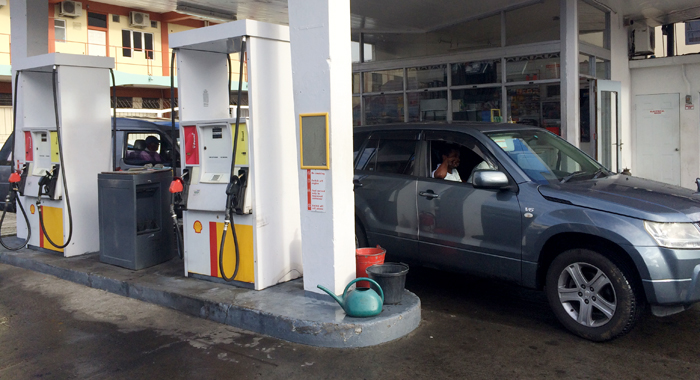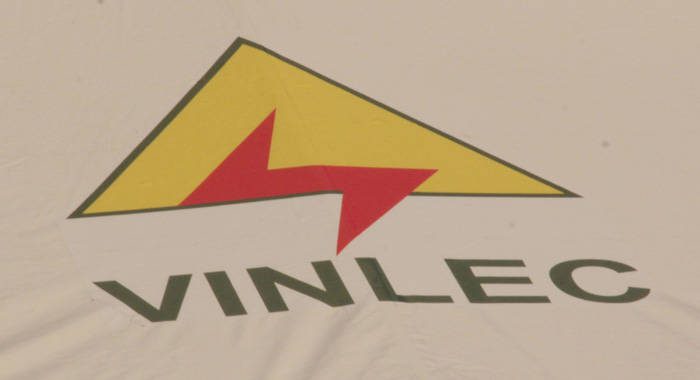Even more questions are being raised about the operations of PetroCaribe in St. Vincent and the Grenadines (SVG) after it became public this week that Sol, a privately-owned company, buys fuel from a PDV SVG of which the government owns 45 per cent, and sells it to VINLEC, the state-owned electricity company.
The information emerged during a telephone call to the opposition New Democratic Party’s (NDP) radio programme on Tuesday by Steve Francis, general manager of Sol, which deals in petroleum products.
Under PetroCaribe, Venezuela’s oil initiative with several Caribbean nations, countries can purchase fuel on terms of preferential payment.
Under the initiative, when the price of oil is between US$15 and US$20 a barrel, countries that have signed on to PetroCaribe must pay within 90 days for 95 per cent of the oil that they receive from Venezuela.
The remaining 5 per cent can be repaid over 25 years at 2 per cent interest.
Conversely, when the price of oil rises to more than US$100 a barrel, 50 per cent is paid within 90 days after the country receives the invoice and 50 per cent over 25 years.
The initiative, which was not subject to parliamentary approval before SVG signed on, is a political hot button issue in SVG, with the Ralph Gonsalves government hailing its economic benefit, while the Arnhim Eustace-led NDP have said that they will rescind the agreement.
The opposition has complained that they have not seen the bilateral agreement that SVG signed with Venezuela, noting that the document available on the Internet is the PetroCaribe co-operation agreement, rather than the bilateral agreement that SVG signed under that broader framework.
Related: SVG owes $141m under PetroCaribe
PetroCaribe had been billed as a sate-to-state arrangement, with the fuel going to VINLEC, and the International Airport Development Company, another state-owned firm.
But Gonsalves announced in Parliament in December that Sol also receives fuel under the PetroCaribe Initiative.
“Sol is now purchasing fuel under the PetroCaribe agreement. At first, it was only mean to facilitate a state-to-state relationship that no other entity – but that has since been altered administratively, but accommodated under the same agreement,” Gonsalves told lawmakers in a ministerial statement about PetroCaribe.
When I-Witness News contacted the Office of the Prime Minister on Wednesday afternoon, we were told that Gonsalves was still meeting with the Cabinet. When we published this story, he was yet to return a call, as requested.
Francis told I-Witness News on Thursday that Sol has been supplying fuel to the VINLEC power plants at Cane Hall and the Grenadines since 2012, having won a tender to do so.
He said that PetroCaribe does not have the infrastructure to supply fuel to these VINLEC power stations.
Francis, in his call to the radio programme on Tuesday, said there “a bit of misunderstanding about our (Sol) role”.
“But just to clear the air, let me say we purchase diesel from the local PetroCaribe company, PDV SVG, for sale exclusively to VINLEC.

PDV SVG is a joint venture company with a configuration of 55 per cent of the shares between PDVSA Caribe, a Venezuelan state-owned company, and 45 per cent of the share owned by PetroCaribe SVG, a company owned by the government of SVG.
Francis said that none of the fuel Sol purchases from PDV SVG is sold at any of Sol’s service stations — “neither our Shell service stations or the SOL service station,” he said on radio.
“This fuel is not sold through our retail network. So in essence, it has absolutely nothing to do with the bonus-malus system and absolutely nothing to do with the retail price of diesel.
“So, I just want to get that clear because I get the impression that people think we are selling this diesel to our retail network. That is incorrect,” Francis said.
Some consumers in SVG have complained about the high price of fuel at the pump in SVG amidst falling oil prices globally.
While the price of oil has fallen to below US$50 a barrel, down from US$115 per barrel last June, Vincentians are paying some US$4.48 per gallon of gasoline and some US$4.78 per gallon of diesel at the pumps.
The price per gallon of gasoline at the pump was EC$12.72, down from EC$15.28 last August, a reduction of EC$2.56.
The price of diesel at the pump is EC$12.91 per gallon.
The NDP has questioned whether the high prices are a tax on consumers to compensate for a short fall in government revenue.
Vincentians are yet to see further reduction in prices even as in neighbouring St. Lucia the government this week announced that the price of unleaded gasoline will decline from EC$13.65 to EC$10.65 a gallon, a saving of EC$3.00.
Castries also announced that the price of diesel will fall from EC$13.21 to EC$11.07 a gallon, a decline of EC$2.14.
Francis noted that the government determines the price at the pump.
He explained the pricing mechanism, saying that to appreciate how the price is determined, one has to understand the bonus-malus system.
The business executive said that under the bonus-malus system, whenever a shipment of fuel is imported, the company has to provide a price build-up to the government.
This includes the value of the shipment, government taxes — $2.50 per gallon for gasoline and $1.50 per gallon for diesel — plus the service charge, which will increase from 4 per cent to 5 per cent soon, in keeping with an announcement by Gonsalves in the 2015 Budget.
“Added to those variables will be our margin of 96 cents per gallon,” Francis said on radio.
“Now, let us assume that when you add up all those variables we require a price of say 10 dollar per gallon, but if the price at the pump is 12 dollars a gallon, that differential of two dollars is a bonus to the government. If the situation were reversed, it would be a bonus for us, but, as I said in a radio programme, I think it I was last week, whenever we are supposed to be getting a bonus, that term ‘bonus’ is a misnomer, simply because what we are really doing where the oil companies are concerned, is recovering our cost. “So, bonus means different things for different persons. So, it is not a true bonus for us. It is just cost recovery,” he said.
Francis, however, noted, that whatever the costs involved, the government then determines the price of fuel.
“We don’t set the price… They will say to us the wholesale price is X; the retail price is Y,” Francis said, noting that Sol dealers earn 70 cents a gallon on gas and 61 cents on each gallon of diesel they sell.
He said that a rough estimate suggests that the one percentage point increase in the Customs Service Charge could cause the price of fuel to increase by 7 cents per gallon, but reiterated that the price is not set by the oil company.







I wonder if the $48million is involved in this scheme. This government has not been transparent with its dealings with PetroCaribe. It appears that Vincentians are being ripped-off and don’t even know it. There are far too many outfits with links to the government that are in position to make money, while the government taxes the hell out of consumers. […] This is where gas, electricity, food stuff, transportation and housing are being squeezed to pay for this underground economy. In every situation when the majority are catching their arse to survive, there are others getting rich living off the poor.